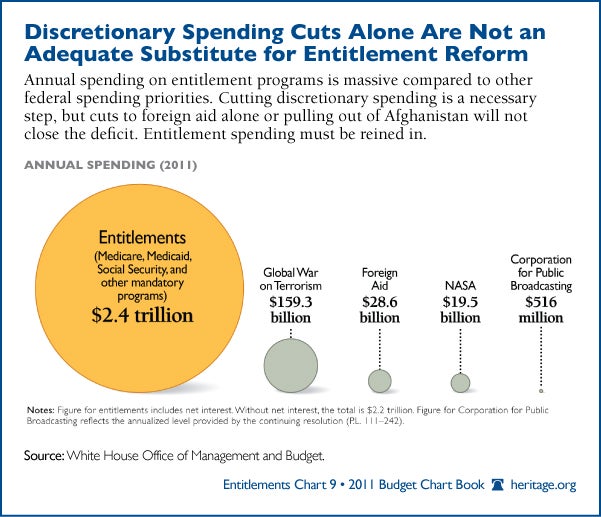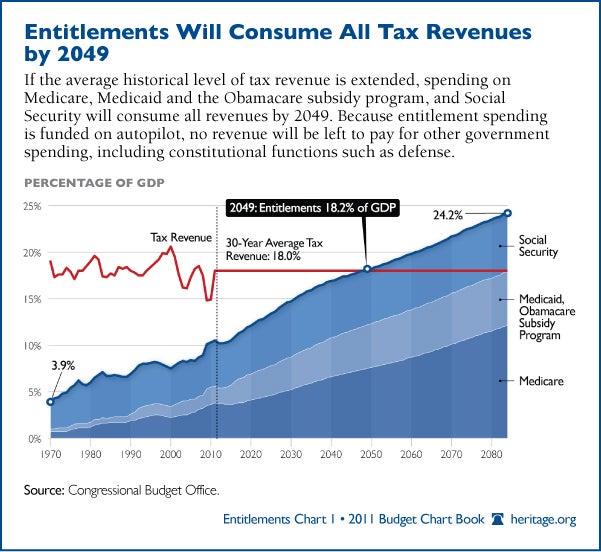The General Services Administration’s (GSA) scandalous spending at a 2010 conference has gotten plenty of attention. Rightly so, because the GSA officials’ misconduct resulted in a gross misuse of taxpayer dollars. But there is much more than egregious abuses of public resources by federal employees and managers.
One of the underlying drivers of such irresponsible spending is a big, bloated government that has a penchant for waste and an accompanying lack of oversight. Taxpayers deserve a better return on their money, a truth that Congress should put into practice by cleaning up any and all government waste.
Washington also misuses taxpayer dollars in less blatant ways. Take the 47 federal job training programs the federal government runs, for example. Or the 15 agencies involved in food safety and inspection. Congress ought to identify areas of program duplication and fragmentation and then consolidate or eliminate unnecessary ones. This recent Government Accountability Office report offers a myriad of programs to cut, combine, or restructure.
Don’t be fooled, though, by thinking that tackling waste alone or combining a handful of programs will solve the country’s twin crises of spending and debt. Waste is deplorable and unacceptable, yet it is small in comparison to the trillion-dollar-plus deficits recorded in recent years. More importantly, it is not the main contributor to Washington’s spending problem. The three major entitlement programs—Medicare, Medicaid, and Social Security—constitute the lion’s share of current spending.
The future portends an even more oppressive burden from entitlement spending. The first baby boomers have reached retirement already, and millions more will become eligible for Medicare and Social Security benefits. Entitlement spending is on track to eclipse all tax revenues, meaning at that point the federal government would have to tax or borrow money to fund all other programs.
Congress and the President are expected to spend today’s taxpayer dollars wisely. They can accomplish this by rooting out waste, eliminating duplicative programs, and returning to a more limited government at the federal level. All of this will help restore Americans’ trust in their government. But to assure Americans that their children can have an even more prosperous future than they had, Congress should do the hard work of proposing entitlement program reforms—reforms that will get spending under control and unshackle future generations from crushing levels of taxes and debt.


































4 Replies to “Cut the Government Waste, but Fix Entitlements, Too”